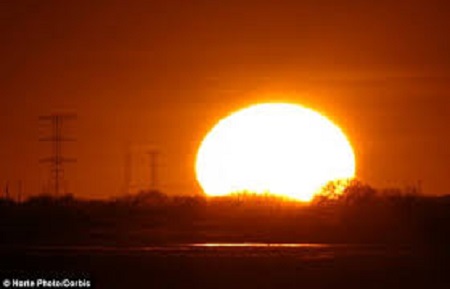Observations from the last fifty years have shown that the nights have been warming much faster than the days. Analysis of the causes of this more rapid warming at night shows that this is likely to continue in the coming decades.
A new publication led by Richard Davy has examined the causes of the more rapid warming at night compared to the day, which has been seen around the globe in recent decades. They have analysed the causes of these changes from observations and model reconstructions of the climate in the 20th century.
By using model reconstructions they were able to determine how much of this asymmetrical warming could be explained by different processes.
Past efforts to understand the reason for this enhanced warming have focused on changes to climate processes that may have occurred at this time, such as increases in cloud cover, precipitation or soil moisture content. However, Davy and colleagues have shown that part of this more rapid warming at night is innate to the climate system, because the night-time temperatures are inherently more sensitive to climate forcing.
The layer of air just above the ground is known as the boundary-layer, and it is essentially separated from the rest of the atmosphere. At night this layer is very thin, just a few hundred meters, whereas during the day it grows up to a few kilometres. It is this cycle in the boundary-layer depth which makes the night-time temperatures more sensitive to warming than the day.
The build-up of carbon dioxide in the atmosphere from human emissions reduces the amount of radiation released into space, which increases both the night-time and day-time temperatures. However, because at night there is a much smaller volume of air that gets warmed, the extra energy added to the climate system from carbon dioxide leads to a greater warming at night than during the day.
This higher sensitivity of night-time temperatures has also affected the number of cold-extreme nights we have seen in recent years. The number of extremely cold nights has dropped by half during the last fifty years, in contrast to the extreme-cold days which have decreased by a quarter.
Understanding the different sensitivity of night and day-time temperatures is crucial for our understanding of climate change and it’s affect on human health. This daily cycle in temperature directly affects human health since night-time temperature extremes can trigger temperature-related fatalities. But it also indirectly affects human health by controlling the growth rates of vegetation.
Source: Science daily
N.H.Kh

